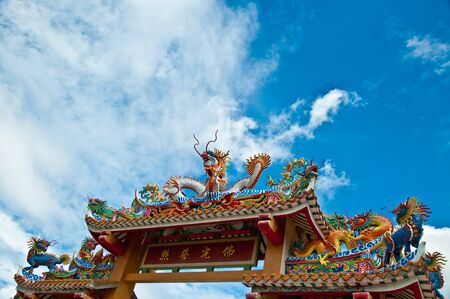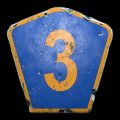Introduction: Blending Eastern Wisdom with Western Spirituality
In recent years, more Americans have become fascinated by Chinese astrology, seeking new ways to understand themselves and deepen their spiritual journeys. While Western astrology has long been popular in the United States, Chinese astrology offers a fresh lens for self-discovery, rooted in thousands of years of Eastern wisdom. This curiosity is not just about learning one’s zodiac animal; it’s about finding new perspectives on life, relationships, and personal growth.
The growing interest in Chinese astrology fits naturally within the broader trend of blending global traditions into American spiritual practices. Yoga from India, mindfulness from Buddhism, and now the Chinese zodiac are all examples of how Americans are open to exploring diverse spiritual paths. People are drawn to these traditions because they offer unique frameworks for understanding destiny, character traits, and even daily decision-making.
Why Are Americans Curious About Chinese Astrology?
The appeal lies in both its novelty and its depth. Unlike Western astrology, which centers on sun signs and planetary movements, Chinese astrology builds around twelve animal signs and five elements, each carrying distinct meanings. This system provides a holistic approach that many find refreshing and insightful.
Main Differences Between Western and Chinese Astrology
| Aspect | Western Astrology | Chinese Astrology |
|---|---|---|
| Main Symbols | 12 Zodiac Signs (Aries, Taurus…) | 12 Animals (Rat, Ox…) |
| Time Cycle | Monthly (based on sun sign) | Yearly (based on lunar calendar) |
| Key Elements | Planets & Houses | Five Elements (Wood, Fire…) |
| Cultural Origin | Ancient Greece & Babylon | Ancient China |
The Potential for Cultural Synergy
This cross-cultural exchange opens up exciting possibilities. By weaving together the reflective practices of American spirituality with the symbolic richness of Chinese astrology, people can gain new insights into their strengths, challenges, and life purpose. This blend allows for a more comprehensive approach to self-discovery—one that honors both individual intuition and ancient tradition.
2. Foundations of Chinese Astrology
To truly understand how Chinese astrology can enrich American spiritual practices and self-discovery, it’s helpful to start with the basics. While Western astrology is familiar to many—think sun signs like Aries or Scorpio—Chinese astrology brings its own set of symbols, cycles, and philosophies that offer fresh perspectives on personality, destiny, and self-understanding.
The Chinese Zodiac: 12 Animal Signs
At the heart of Chinese astrology is the zodiac system, which uses 12 animal signs to represent years in a repeating cycle. Unlike Western astrology, which assigns zodiac signs based on your birth month, Chinese zodiac signs are determined by your birth year according to the lunar calendar. Here’s a quick overview:
| Chinese Zodiac Animal | Birth Year Cycle Example | Key Traits |
|---|---|---|
| Rat | 2008, 1996, 1984… | Clever, adaptable |
| Ox | 2009, 1997, 1985… | Dependable, strong |
| Tiger | 2010, 1998, 1986… | Brave, confident |
| Rabbit | 2011, 1999, 1987… | Gentle, compassionate |
| Dragon | 2012, 2000, 1988… | Energetic, charismatic |
| Snake | 2013, 2001, 1989… | Wise, intuitive |
| Horse | 2014, 2002, 1990… | Lively, independent |
| Goat (Sheep) | 2015, 2003, 1991… | Mild-mannered, creative |
| Monkey | 2016, 2004, 1992… | Clever, resourceful |
| Rooster | 2017, 2005, 1993… | Observant, hardworking |
| Dog | 2018, 2006, 1994… | Loyal, honest |
| Pig (Boar) | 2019, 2007, 1995… | Sincere, generous |
The Five Elements: Cycles and Balance
A distinctive feature of Chinese astrology is the theory of five elements—Wood, Fire, Earth, Metal, and Water. Each element not only influences the animal signs but also represents different kinds of energy and ways of interacting with the world. The elements follow cycles that either nourish (productive cycle) or control (destructive cycle) one another. This idea can be compared to Western concepts like planetary aspects or elements (Earth/Air/Fire/Water), but in Chinese thought it’s more about dynamic balance and flow.
| Element | Main Qualities | Nourishes (Productive) | Controls (Destructive) |
|---|---|---|---|
| Wood | Growth, flexibility | Fire | Earth |
| Fire | Passionate, energetic | Earth | Metal |
| Earth | Nurturing stability | Metal | Water |
| Metal | Diligent clarity | Water | Wood |
| Water | Clever adaptability | Wood | Fire |
The Philosophical Foundation: Yin-Yang and Harmony with Nature
A central concept in Chinese metaphysics is the principle of yin and yang—the dual forces that exist in everything: light/darkness, action/rest, male/female. Balance between these energies is key for well-being. This focus on harmony with nature contrasts with some Western astrological traditions that emphasize individual will or fate over cosmic balance.
Main Differences and Similarities with Western Astrology:
| Chinese Astrology | Western Astrology | |
|---|---|---|
| Zodiac Basis | Lunar calendar (year-based) animal signs | Tropical calendar (month-based) sun signs |
| Main Elements | Five Elements (Wood/Fire/Earth/Metal/Water) + Yin-Yang duality | Four Elements (Earth/Air/Fire/Water) + Modalities (cardinal/fixed/mutable) |
| Cyclical Focus | Twelve-year cycle; elemental cycles; balancing energies and relationships with nature | An annual cycle; planetary movements; individual personality traits and destinies |
Tapping into a New Perspective for Self-Discovery in America
The blending of Chinese astrology’s holistic worldview with American approaches to spirituality opens up new pathways for self-reflection. Understanding these foundations helps us see both where our journeys align—and where we can find inspiration from cross-cultural wisdom.

3. Navigating American Spiritual Landscape
When we talk about bringing Chinese astrology into American spiritual practices, it’s important to first understand what drives spirituality in the United States today. The American spiritual landscape is shaped by certain core values and trends that make it unique. These include a strong focus on individualism, a growing interest in mindfulness, and an ongoing search for personal growth and self-discovery. Let’s take a closer look at these elements and see how they can connect with Chinese astrology.
Key Values in American Spirituality
| Core Value or Trend | Description | How Chinese Astrology Can Connect |
|---|---|---|
| Individualism | Americans often prioritize personal freedom, self-expression, and forging their own spiritual paths instead of following strict traditions. | Chinese astrology offers customized readings based on birth details (year, month, day, time), allowing for deeply personalized insights that align with American values of uniqueness and self-direction. |
| Mindfulness | The practice of staying present and cultivating awareness is increasingly popular, especially through meditation, yoga, and breathwork. | The cycles and elements in Chinese astrology (like the Five Elements) encourage reflection and being attuned to ones natural rhythms, which can enhance mindfulness practices. |
| Personal Growth | There is a widespread desire for self-improvement, healing past wounds, and unlocking one’s potential. | Chinese astrology highlights strengths, challenges, and life cycles—offering tools for self-understanding and guiding personal development journeys. |
Trends Shaping the Modern Spiritual Scene
- Diversity of Beliefs: Americans are open to blending different traditions—from Buddhism to indigenous wisdom to astrology—creating a pluralistic approach to spirituality.
- Community and Connection: Many seek out groups or online communities to share their experiences and grow together. This openness makes it easier for new systems like Chinese astrology to find a home among existing spiritual circles.
- Holistic Wellness: Spirituality is often linked with mental health, physical well-being, and emotional balance. Integrating Chinese astrology into holistic wellness routines can offer fresh perspectives on how energy flows impact daily life.
Fitting Chinese Astrology into the American Context
To successfully incorporate Chinese astrology into this vibrant landscape, it helps to present its concepts in ways that resonate with American values. For example:
- Personalized Birth Charts: Like Western astrology but rooted in Eastern philosophy, BaZi (Four Pillars of Destiny) readings can be adapted as a tool for self-reflection.
- Cyclical Living: Using the lunar calendar or understanding annual zodiac animal influences can support mindful living aligned with nature’s cycles.
- Workshops & Group Events: Hosting group sessions where people learn about their Chinese zodiac signs or elements can build community while honoring individual journeys.
The Bottom Line: A Bridge Between East and West
The openness of American spirituality creates fertile ground for blending systems like Chinese astrology with established practices focused on personal growth and awareness. By highlighting how Chinese astrological principles support individual exploration and mindful living, practitioners can help Americans enrich their spiritual journeys in meaningful new ways.
4. Practical Ways to Integrate Chinese Astrology
Bring Chinese Astrology into Your Everyday Spiritual Practice
Exploring Chinese astrology can be both meaningful and approachable, especially when you combine its ancient wisdom with American spiritual routines. Here are some practical ways to start weaving these concepts into your daily life, whether you’re solo or enjoy group activities.
Create Your Own Chinese Birth Chart
A birth chart is the foundation of any astrological practice. In Chinese astrology, this means identifying your Zodiac animal (based on birth year), your Element (Wood, Fire, Earth, Metal, Water), and even your inner animal sign (month of birth). You can find free resources online or use apps designed for Western audiences. Once you have your chart, try reflecting on how these aspects relate to your strengths, challenges, and life path.
| Element | Main Qualities | Tips for Daily Integration |
|---|---|---|
| Wood | Growth, Creativity | Start a new hobby or creative project; set growth goals |
| Fire | Passion, Leadership | Lead a group activity; practice positive affirmations |
| Earth | Stability, Support | Organize your space; volunteer in your community |
| Metal | Discipline, Precision | Create a daily ritual; work on a detailed craft or task |
| Water | Wisdom, Flexibility | Meditate by water; keep a dream journal |
Journaling with Chinese Astrological Insights
Journaling is already a popular self-discovery tool in the U.S., and it pairs perfectly with Chinese astrology. Each morning or evening, jot down thoughts about how your Zodiac animal’s traits showed up that day. For example, if you’re a Rabbit (known for sensitivity and kindness), reflect on moments you offered support or needed extra care.
Simple Journaling Prompts:
- What qualities of my animal sign did I notice today?
- How did my Element influence my reactions or choices?
- What small ritual can I add tomorrow to honor my astrological strengths?
Group Workshops and Community Rituals
If you love learning with others, consider hosting a group workshop—virtually or in person—to explore Chinese astrology together. Start with a basic introduction to the system and help everyone create their own charts. Then discuss each person’s signs and elements in a supportive setting. You might end the session by lighting candles for each Element or sharing affirmations that align with everyone’s Zodiac qualities.
Ideas for Group Activities:
- Zodiac Potluck: Invite friends to bring dishes that represent their Zodiac animals or Elements.
- Guided Meditation: Lead a meditation focusing on balancing the Five Elements within yourself.
- Astral Vision Boards: Use magazines and art supplies to make vision boards inspired by your signs.
Merging Traditions: Making It Your Own
The beauty of integrating Chinese astrology into American spiritual practices is the freedom to customize rituals that fit your lifestyle. Whether it’s using crystals aligned with your Element, repeating mantras based on your Zodiac sign, or simply being mindful of astrological seasons (like Lunar New Year), there are countless ways to make this ancient wisdom feel fresh and relevant in modern America.
5. Personal and Community Self-Discovery
Understanding Yourself Through Chinese Astrology
Chinese astrology offers a unique lens to look at our personalities, strengths, and life paths. Unlike Western zodiac signs, Chinese astrology uses a twelve-year animal cycle and the five elements (Wood, Fire, Earth, Metal, Water) to describe traits and influences. By learning about your own Chinese zodiac sign and element, you can gain new insights into your behavior patterns, emotional responses, and potential growth areas. This fresh perspective can help you understand why you connect easily with some people or face challenges with others.
Quick Guide: What Your Chinese Zodiac Might Reveal
| Animal Sign | Key Traits | Possible Growth Focus |
|---|---|---|
| Rat | Clever, adaptable | Patience with slow processes |
| Ox | Reliable, determined | Flexibility in changing plans |
| Tiger | Bold, passionate | Balancing risk-taking with caution |
| Rabbit | Sensitive, gentle | Speaking up for yourself |
| Dragon | Confident, energetic | Listening to others’ perspectives |
| Snake | Wise, intuitive | Trusting others more openly |
| Horse | Free-spirited, enthusiastic | Finishing what you start |
| Goat (Sheep) | Caring, creative | Setting boundaries for self-care |
| Monkey | Clever, playful | Focusing on one goal at a time |
| Rooster | Organized, honest | Losing perfectionism when needed |
| Dog | Loyal, just | Bouncing back from setbacks quicker |
| Pig (Boar) | Sincere, generous | Saying no to overcommitment |
Cultural Appreciation: Bridging Traditions in America
Diving into Chinese astrology is not just about personal discovery—it’s also an opportunity to appreciate another culture’s wisdom. In American spiritual communities where diversity is celebrated, exploring Chinese astrology opens up conversations about heritage, symbolism, and different worldviews. This cross-cultural curiosity helps break down stereotypes and builds respect for traditions outside our own backgrounds.
Cultural Exchange Ideas for Groups:
- Zodiac-themed potlucks: Invite friends to bring foods related to their animal year.
- Astrology workshops: Host sessions where members share stories or insights from their Chinese zodiac.
- Meditation circles: Focus on themes like “Earth energy” or “Year of the Rabbit reflection.”
Nurturing Community Bonds Through Shared Exploration
The process of exploring Chinese astrology together can help foster deeper community connections. As group members learn about each other’s signs and stories, they often find surprising similarities or helpful differences that spark empathy. These shared experiences create safe spaces for self-expression while building bridges between individuals from diverse backgrounds. By integrating Chinese astrology into American spiritual practices—like group journaling or discussion circles—communities grow stronger through mutual understanding and celebration of unique identities.
6. Addressing Misconceptions and Promoting Respectful Integration
Understanding Chinese Astrology: Clearing Up Common Myths
As Chinese astrology becomes more visible within American spiritual circles, it’s important to separate fact from fiction. Here are some common myths and the truths behind them:
| Myth | Reality |
|---|---|
| Chinese astrology is just about zodiac animals. | While zodiac animals are a well-known feature, Chinese astrology also involves elements, lunar cycles, and a complex system of relationships and timing. |
| Its only for people of Chinese descent. | Anyone can learn from Chinese astrology if they approach it with respect and curiosity, much like yoga or meditation practices from other cultures. |
| All Chinese astrological readings are the same. | No—each reading is highly personalized, taking into account birth date, time, year, and individual circumstances. |
Guidelines for Cultural Sensitivity in Practice
If you want to incorporate Chinese astrology into your spiritual journey in the U.S., it’s key to do so thoughtfully and respectfully. Here are some easy-to-follow guidelines:
- Educate Yourself: Take time to read credible sources or consult with practitioners who have authentic training in Chinese astrology.
- Avoid Stereotyping: Don’t reduce practices to simple symbols or make jokes about cultural traditions—it can be hurtful and misleading.
- Credit the Origins: When sharing insights or hosting events, acknowledge the roots of these practices in Chinese culture and history.
- Be Mindful with Commercialization: Use care when selling products or services that reference Chinese astrology. Make sure you are honoring its origins rather than appropriating them.
- Create Inclusive Spaces: Welcome diverse voices and recognize that there are different schools and interpretations within Chinese astrology itself.
Promoting Ethical and Informed Adoption
The best way to integrate Chinese astrology into your spiritual life is through ethical engagement. Here’s how you can do that:
- Seek Qualified Teachers: Look for teachers who have studied traditional methods and who respect the culture they come from.
- Avoid “One-Size-Fits-All” Readings: Personalized readings are more accurate and respectful than generic horoscopes.
- Keep Learning: Stay open to feedback from practitioners within the community; learning is an ongoing process.
- Practice Humility: Recognize what you don’t know, and be willing to ask questions or step back when needed.
A Simple Checklist for Responsible Integration
| Action | Why It Matters |
|---|---|
| Cite your sources and teachers | Keeps information accurate and honors tradition |
| Avoid stereotypes in art or language | Presents a more truthful image of Chinese culture |
| Create room for multiple perspectives | Shows respect for diversity within spiritual practices |
| Acknowledge limitations in your knowledge | Makes space for authentic learning and growth |
The Takeaway: Building Bridges, Not Barriers
By approaching Chinese astrology with openness, humility, and care, American spiritual seekers can enrich their journey while building genuine cross-cultural understanding. This not only deepens personal self-discovery but also honors the wisdom at the heart of these ancient traditions.
7. Resources and Next Steps
Exploring Chinese astrology within the context of American spiritual practices can be a rewarding journey, especially with the right resources and supportive communities. Here are some practical ways to continue your learning, connect with others, and safely experiment with integrating Chinese astrology into your self-discovery process.
Further Reading and Educational Materials
| Title | Description | Where to Find |
|---|---|---|
| The Handbook of Chinese Horoscopes by Theodora Lau | A classic introduction to the fundamentals of Chinese astrology with easy-to-understand language and yearly predictions. | Major bookstores, Amazon, local libraries |
| Eastern Wisdom, Modern Life by Taro Gold | An accessible book connecting Eastern philosophies, including astrology, to everyday life in the West. | Barnes & Noble, eBook platforms |
| Online Courses (Udemy, Coursera) | Self-paced classes on basics of Chinese astrology and its applications. | Online course platforms |
Reputable Practitioners in the U.S.
- Feng Shui Consultants: Many certified practitioners also offer Chinese astrology readings—search for certified members through organizations like the International Feng Shui Guild.
- Asian Cultural Centers: Many major cities have centers or temples that host workshops on traditional Chinese metaphysics.
- Integrative Wellness Coaches: Some holistic coaches blend Western and Eastern modalities. Look for those who mention “Chinese astrology” or “BaZi” in their offerings.
Online Communities and Safe Spaces for Exploration
- Reddit – r/ChineseAstrology: A lively forum for questions, sharing birth charts, and learning from others’ experiences.
- Facebook Groups: Search for groups like “Chinese Astrology Enthusiasts USA” or “American Spiritual Seekers: East Meets West.” These communities often share event updates and educational content.
- YouTube Channels: Channels hosted by bilingual astrologers sometimes offer free lessons or Q&A sessions tailored for an American audience.
Multicultural Events and Local Workshops
| Event Name | Description | Cities/Regions |
|---|---|---|
| Lunar New Year Festivals | Cultural celebrations often include astrology booths or mini-readings as part of the festivities. | San Francisco, Los Angeles, New York City, Houston, Seattle |
| Chinatown Night Markets | A chance to meet practitioners and buy books or tools related to Chinese metaphysics in a lively setting. | Cities with established Chinatowns across the U.S. |
| Mystic Fairs & Mind-Body-Spirit Expos | Diverse expos where you can find workshops blending Eastern wisdom with Western spirituality. | Nationwide—check local listings |
Tips for Safe Experimentation and Continued Learning
- Start small: Try a basic zodiac reading before diving into complex systems like BaZi or Four Pillars of Destiny.
- Cross-reference information: Use multiple sources to get a well-rounded understanding—especially when learning online.
- Engage respectfully: Honor both cultures by asking questions with curiosity and openness in multicultural spaces.
- Document your journey: Keep a journal to track insights from readings, workshops, or online discussions as you explore what resonates most with your spiritual path.
Your Next Step Awaits!
The blend of Chinese astrology and American spiritual practice is vibrant and ever-evolving. With these resources at your fingertips, you can personalize your journey while building connections within an inclusive community of seekers.


